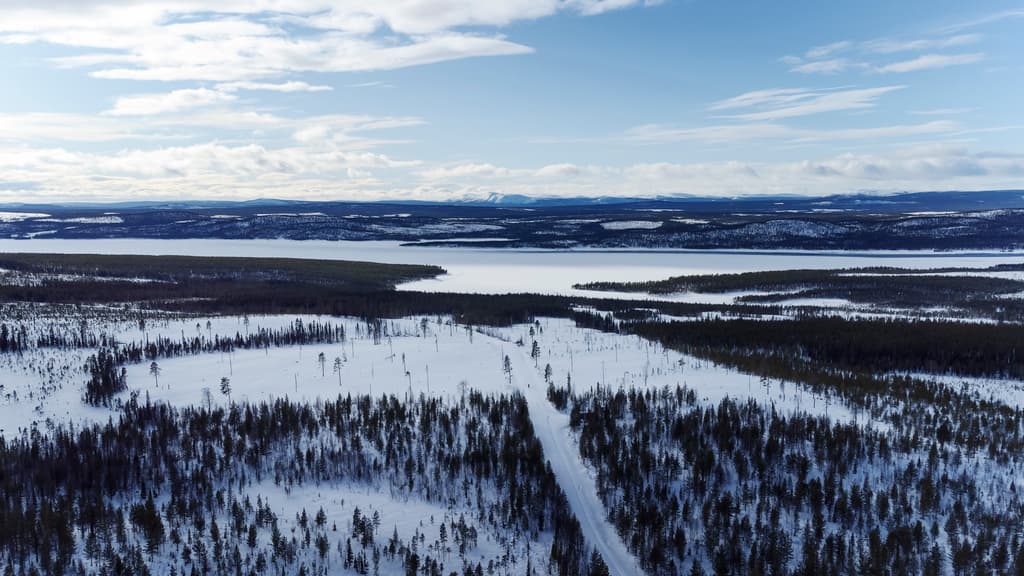The Supreme Administrative Court approves the government's disputed decision to allow mining plans in Kallak in Jokkmokk municipality. The verdict is met with disappointment on several fronts.
Two years ago, the government granted an operating permit to the mining company Jokkmokk Iron Mines. With the permit, the company could continue its investigations ahead of a potential mine start in Kallak.
However, the mining plans have been questioned as they are deemed to threaten reindeer herding and nature in the area. Two Sami villages, Jåhkågasska and Sirges, as well as the Swedish Society for Nature Conservation, therefore requested a judicial review of the government's decision.
The Sami villages argue, among other things, that there was bias in the government's handling, that the review should have included ore transportation to and from the planned mine, and that the company's environmental impact assessment has significant flaws.
International Law
However, the Supreme Administrative Court does not agree. According to Tuesday's verdict, the government's decision does not contravene any legal rule and shall therefore stand. The court writes, among other things, that it is not possible to conclude at this stage of the process that "the affected Sami villages will be forced to cease reindeer herding as a result of the mine establishment".
This is something that Jåhkågasska Sami village strongly disagrees with. A mine would significantly reduce or make reindeer herding impossible in the area.
Then the entire traditional reindeer herding in one of Sweden's Sami villages will be eradicated. It contravenes human rights and Sweden's international commitments, says advocate Camilla Wikland, representing the Sami village.
"Astonishing"
Both Sami villages are now considering the possibility of appealing to an international court.
It's not over here. We'll have to consider whether to take the international route and appeal the decision, says Camilla Wikland.
Amnesty International Sweden has similar criticism:
"The government's decision contravenes international law. That the company is still allowed to proceed with the mining project is astonishing and can only be seen as the indigenous people's rights being given very little weight in Sweden", says lawyer Tilda Pontén in a press release.
The Swedish Society for Nature Conservation also expresses disappointment. "The mine is unnecessary and located in a very sensitive natural area. We're now pinning our hopes on the mining company not proceeding with its application", comments Secretary-General Karin Lexén.
Jenny Wik Karlsson, representative for Sirges Sami village, reminds us that the operating concession is just one step – but not a decisive one. To actually start a mine, permission is also required under the Environmental Code.
There are great opportunities for the Sami villages to raise issues such as transportation to and from the mine in the Land and Environment Court. So, there are still hopes that there won't be a mine, says Wik Karlsson.
The large iron ore deposit outside Jokkmokk was discovered in the 1940s.
In 2006, British Beowulf received an exploration permit.
Drilling tests were conducted in 2010, and in connection with pilot mining in 2013, widespread protests broke out.
The same year, an application for an operating concession was submitted to the Mining Inspectorate. The matter ended up with the government in 2017, after the County Administrative Board in Norrbotten said no.
In March 2022, the government granted Beowulf's subsidiary, Jokkmokk Iron Mines, an operating concession. This gave the company the opportunity to further investigate the mining plans.
In September 2023, hearings were held in the Supreme Administrative Court regarding the government's decision after the Swedish Society for Nature Conservation and the local Sami villages requested a judicial review.
The Supreme Administrative Court's verdict was delivered on Tuesday, 25 June 2024.
The final permit review for a mine is conducted by the Land and Environment Court.






